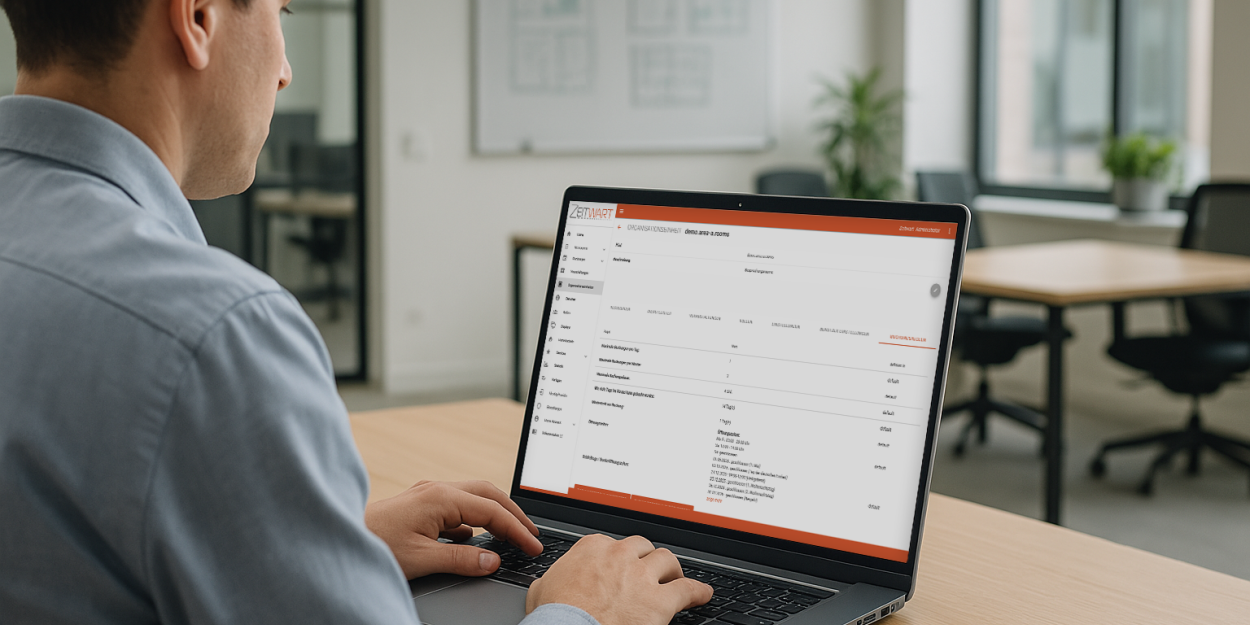
03.04.2025
Use booking rules cleverly: How to organise rooms fairly and efficiently
With individual booking rules, you can organise room allocations fairly and flexibly - tailored to user groups, times and organisational needs.
Well-functioning room management is more than just avoiding double bookings. It is about making resources available in a targeted manner - for the right people, at the right time, according to comprehensible rules. Zeitwart offers a powerful tool for this: freely definable booking rules. In this article, we show you how to use these rules effectively to bring fairness, structure and flexibility to your room and resource bookings.
What are booking rules in Zeitwart?
Booking rules control who can book what and when. These rules can be applied to a wide range of resources - from meeting rooms and vehicles to services such as catering or technical support.
The rules are based on:
User roles (e.g. employees, guests, administration)
Organisational units (e.g. departments, divisions, locations)
Time windows (e.g. working days, weekends, holiday periods)
Combinations of conditions
Practical scenarios: How rules can be applied in practice
1. Time-based rules
Example: The large conference room may only be booked between 8 a.m. and 6 p.m. on weekdays - authorisation is required outside these times.
2. User group-based
Example: A meeting room in the marketing department may only be booked by the marketing department on Fridays - on other days it is open to everyone.
3. Resource-dependent rules
Example: A pool vehicle with an electric drive may only be booked by users with the appropriate instruction or driving licence.
4. Staggering & repetitions
Example: A training room can be booked by trainees a maximum of 3 times per month, by the IT department unlimited.
Transparency and fairness
Clearly defined booking rules help you avoid typical problems such as
Permanent blocking by individual users
Conflicts between departments
Non-transparent room allocation
All rules are clearly understandable for administrators and can be easily customised using the Zeitwart graphical user interface. This means you are always in control - even with growing user numbers.
Technical advantage: Validation in real time
The rules take effect before every booking. If a user attempts to break a rule - e.g. selects an unauthorised time or resource - the booking is automatically rejected or suggested for approval. This reduces errors and noticeably increases booking quality.
Can be combined with workflows and roles
Booking rules are particularly effective in combination with:
Automatic role assignment (e.g. via email domains)
Authorisation procedures that are activated when required
Organisational units that map different rules
The result is a system that grows with your organisation - without any additional administrative effort.
Conclusion
Booking rules are the backbone of flexible yet clearly regulated resource management. With Zeitwart, you can customise these rules to suit your structure, your needs and your culture.